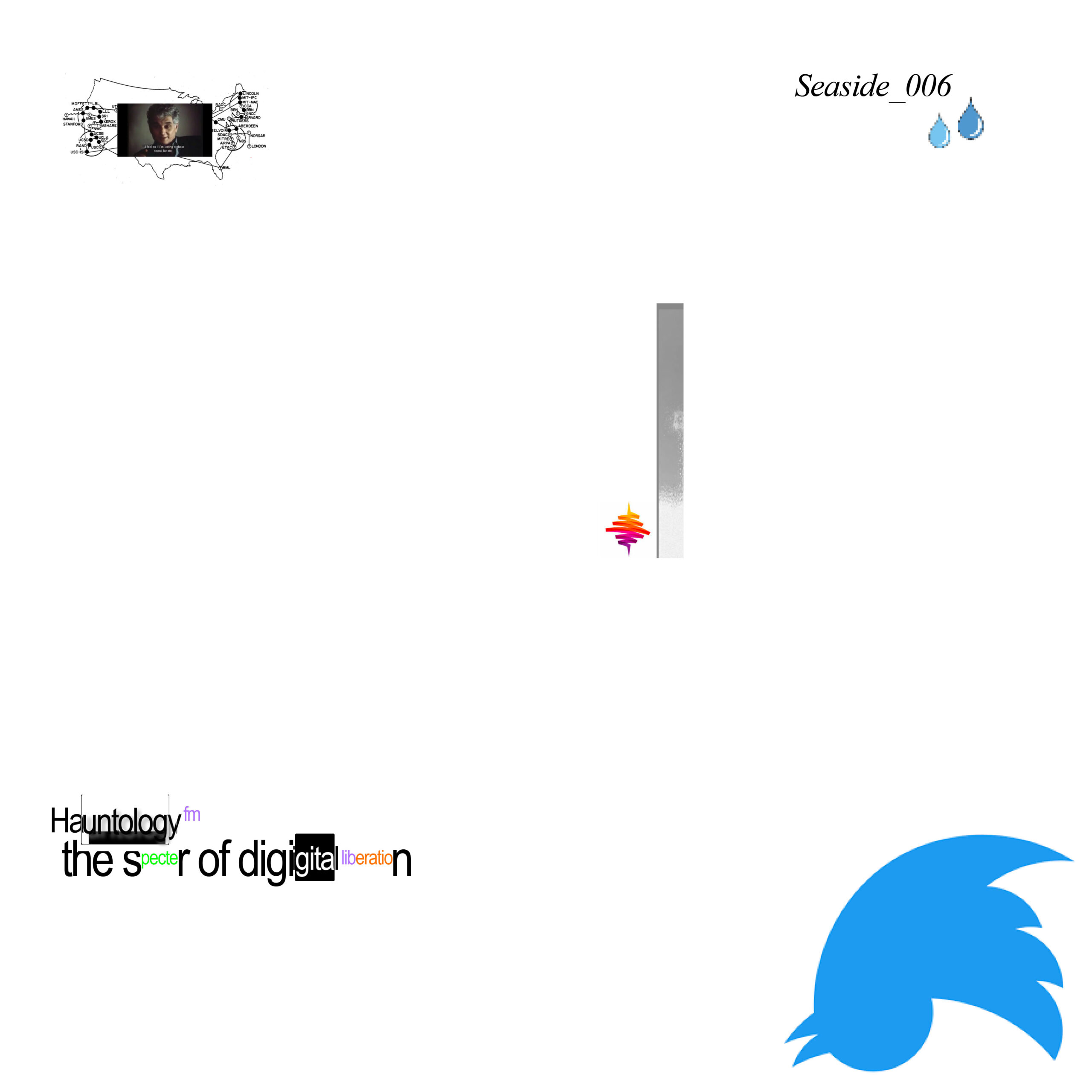Seaside_006 Hauntology FM: the specter of digital liberation
This Seaside is presented by Hauntology FM: a show about the myths, sounds, spaces, and objects that haunt our everyday life.
“Derrida’s concept of hauntology denotes the phenomenon of elements from the past haunting the present. With our show, we want to venture into the artistic and theoretical exploration of the myths of society we are suspended in, that feed the mind like amniotic fluid. Our show explores how these stories, objects, and spaces can become imbued with emotion and meaning (for example, political meaning) and thereby haunt our present, becoming the hidden ghosts in our lives. Our first episode centers on the specter of digital liberation, investigating the origins of both Twitter and Arpanet. Positing these as a contrast to the myth of the internet as a citizens utopia.”
Cara DJs under the name Cardboard Lamb and is interested in the intersection of technology, art, cinema, and music, with a particular focus on radio as a work of art and socio-political tool. She has worked in an around radio, working with Future Intel, Operator, and at GoodTimesBadTimes, where she ran radio-project ‘Dear Navigator’ with the artist Sylvie van Wijk, in which they took locations in Rotterdam as starting points to explore their sonic and social contexts, weaving soundscapes with discussions of politics of the city. She now works primarily as a programmer, music journalist, and DJ. As a DJ, she is interested in narrative radio – mixing ambient, experimental electronics, and various wave and folk with film clips, field recordings, and poetry along a chosen theme.
Sonia is deeply interested in philosophy and has recently completed a Master of Philosophy at Erasmus University in Rotterdam. She works as a managing editor at Spiral Magazine, a multimedia platform for an international collective of artists and academics, as well as a lead editor at Erasmus Student Journal of Philosophy. Her academic interests mainly concern continental political philosophy and the notions of time and history as political concepts. Her master thesis explored the influence that historical-affective time has on the development of emancipatory moments. She has long been interested in music, particularly in experimental rock, shoegaze, and post-punk.
